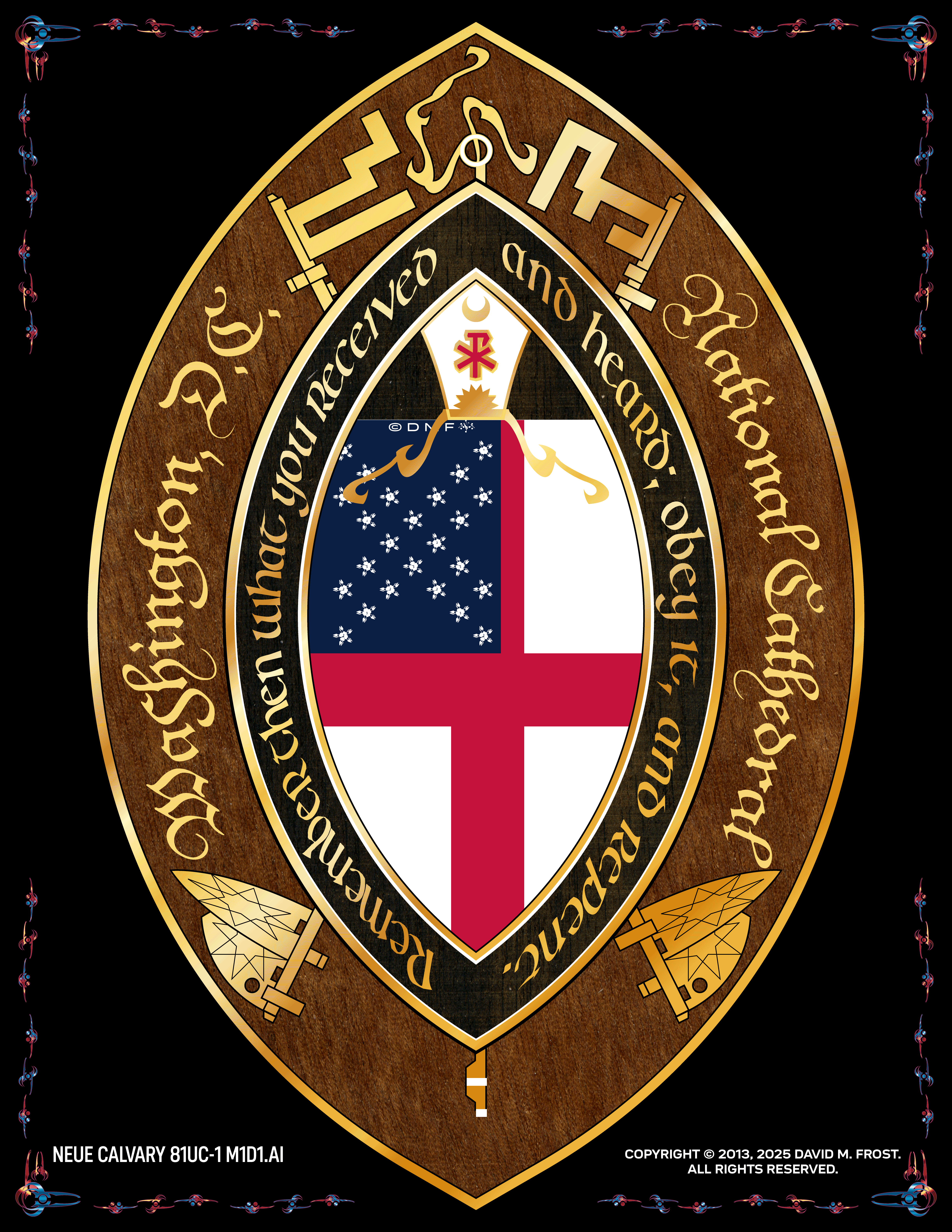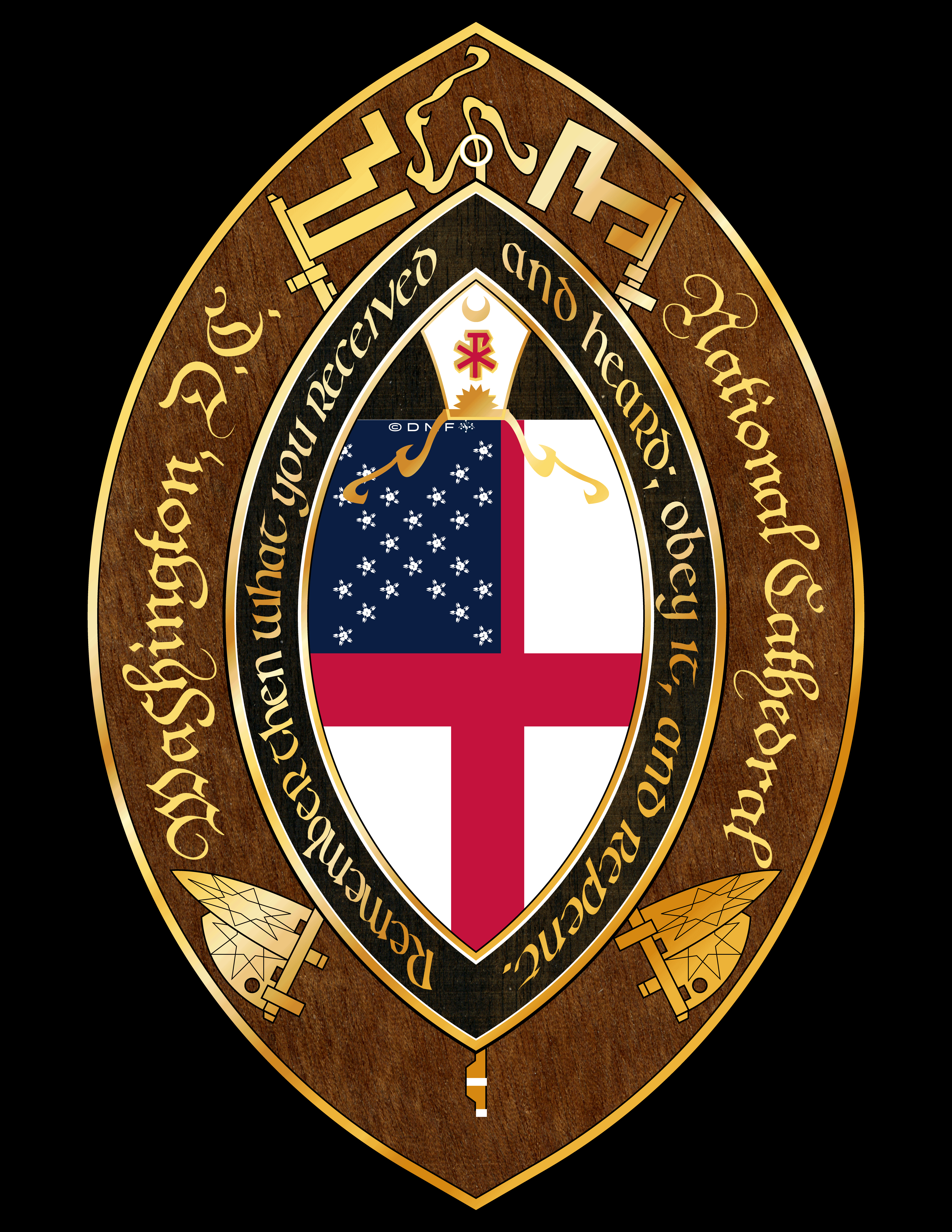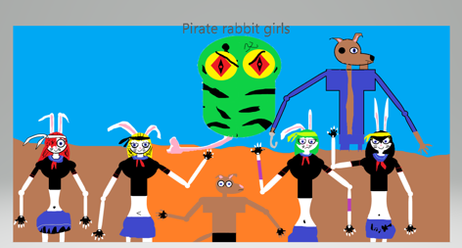HOME | DD
 Mobiyuz — Risen Lands - The Republic of Arazugh
Mobiyuz — Risen Lands - The Republic of Arazugh

#alternatehistory #alternatehistorymap #risenlands #echobank
Published: 2023-09-24 21:17:26 +0000 UTC; Views: 10142; Favourites: 79; Downloads: 20
Redirect to original
Description
Overview
The Republic of Arazugh (Arazughan: Guanyac Arazugh/ⴳⵓⴰⵏⵢⴰⵛ ⵄⵔⴰⵣⵓⵖ) is an island nation in northwestern Africa. Considered part of the broader grouping of "Macaronesia", Arazugh is sometimes seen as the southernmost of the Canary Islands but is in fact part of a separate geological province, the only surfaced volcano in a series of mostly submerged seamounts known as the San Borondon Group. The history of this small island is a complex intersection between colonial, post-colonial, and broader Euro-African histories which result in a long series of complicated relationships with the outside world. For the most part, though, most Arazughans would say that the only real problem of their nation are the volcanoes, best represented by the 1989 eruption of Mt. Petun which left most of the interior of the island abandoned. Still, in an increasingly complicated world Arazugh's position is a perfect example of the complications which emerge from the complicated abstract relationships between nations.
Geography / Ecology
Arazugh is the tallest and only emerged volcano of the San Borondon Group, a set of volcanoes southwest of the Canary Islands which includes the Paps, Tropic, Bimbache, and Drago Seamounts, all of which are submerged. Arazugh alone is surfaced, propped up by the efforts of four volcanoes: Petun, Mayec, Guan, and Yelli, all of which are active and which have erupted at least once each in the last 100 years. Having emerged during the Cenozoic Era, Arazugh is a relatively young island in the context of the relatively young Atlantic Ocean, and although separate from the physical body of the African continent (i.e. separate from its continental shelf) the island is still categorized as African for the sake of cultural, historical, ecological, and geographic convenience. It remains worth bearing in mind, though, that Arazugh is geologically a distinctive body, evidenced by its active and ongoing volcanism, and in this regard has more in common with the Canary Islands of the north than the neighboring mainland.
All that aside though Arazugh is still informed largely by the African mainland, being located 386 km (240 mi) northwest of the port city of Dakhla, separated from the mainland by an abyss of the Atlantic Ocean. As part of the Macaronesia ecoregion the ecology of Arazugh is heavily shaped by the climate and ecology of nearby Africa. However, despite its size Arazugh is sometimes called the "World's Smallest Continent" for a vast variety of microclimates ranging from humid laurel forests to arid deserts in the rain shadows of its mountains, with many different ecosystems in between. On top of this the island is also subject to dust being blown westward from the Sahara, which periodically causes significant dustfall but which also acts as a fertilizing mechanism for both terrestrial and surrounding oceanic environments which combined with the active vulcanism create an extremely fertile environment for many types of plants and subsequently animals, few of which are endemic to Arazugh but which still display intense diversity.
That being the case, within the Palearctic realm of biogeography Arazugh is still a distinct province owing to its isolation. Few large mammals are found on the island, those which exist being introduced. Fauna is instead dominated by insects, birds, and bats. Animals are often generalists and show little examples of specialization, given that within this small body of land the environment ranges from shifting sand dunes to dense forests to xeric scrublands to mediterranean climates. Plants exhibit a unique ability to adapt themselves to surrounding environments, and at first many plants which were thought to be separate species are in fact genetically identical but express different adaptations to cope with water availability, sunlight, soil fertility, and local animal presence depending on the climate they grow in, a trait known as "phenotypic plasticity". Like with many places, of course, these environments are threatened by human activity, which is particularly potent on a small island such as this.
Overwhelmingly though the biggest single environmental event in recent years was the Mt. Petun Eruption of 1989, wherein the largest volcano of the island erupted in a spectacular Plinian-Peléan fashion which blew out its southwestern flank, causing an ashflow that devastated the interior of the island. The eruption, which had only three days of warning, killed twelve hundred people and resulted in the creation of an "Exclusion Zone" in the island's center. Within this exclusion zone, the ecology has made a spectacular comeback and even long after the eruption ceased the government has maintained a policy of keeping the exclusion zone active as a quasi-ecological reserve, somewhat comparable to the Chernobyl Exclusion Zone in Ukraine and Belarus. However, all four of the volcanoes remain active, and since 2021 activity registered with Mt. Mayec has continually raised concerns that a new eruption may be imminent, leading to the Exclusion Zone being maintained and extended slightly westward to the slopes of Mt. Mayec.
History
Arazugh shows a lack of human presence for much of the history of human expansion throughout the world, definitively beginning at least 2,000 years ago (but potentially extending earlier than that) and seeing the rise of a culture related to that of both mainland Africa and the Canaries, what would later be called that of the "Guanches". Evidence exists for Roman, Greek, Carthaginian, and potentially even Phoenician knowledge of the island, but for most purposes the "proper" history begins in the 15th Century as both Castile and Portugal began to expand outwards into the Atlantic. Unlike the Canaries, however, Arazugh remained largely uncolonized for most of the colonial era of European expansion.Indeed, a number of efforts were made to try and take the island, dubbed "San Borondon" by the Castilians in reference to the legend of the Irish monk Saint Brendan, but none were successful, despite the active and successful conquest of the Canaries by 1496.
A number of debates have raged over exactly why San Borondon was claimed but never properly colonized, ranging from an eruption in 1458 scaring off the would-be conquerors to a lack of political willpower to a simple lack of interest in the small island, but the most proximate cause appears to have been on the part of the actual Arazughans. Although resistance to conquest was a natural feature of expansion into Macaronesia and later Africa, the Arazughans were noted as being especially violent in their attacks against any outside presence, the sole exception being escapees from the Castilian conquest of the Canaries who may have only further contributed to this resistance. At any rate, for much of the history of the modern era Arazugh is noted as a possession of the Spanish crown but in practice was never truly held. Efforts by the Portuguese and French to conquer the island were similarly met with vicious resistance, and with far more appealing lands to be had in the Americas and later Africa the island was almost wholly ignored.
Indeed, the name "Arazugh" means "Refuge" in Berber languages, and for the Guanches being steadily extinguished by assimilation and conquest the island was in fact the last refuge for many of their culture. Despite this, some small influence slipped through the gaps. In particular Christianity was prevalent on the island, but an unusual form of Catholicism that adapted elements of both the pre-Christian animist faith and Islam, which in isolation from the oversight of the Catholic Church itself only further diverged in succeeding years. Even with that, though, the island was still considered "outside" of the Christianized world, but seen as not worth the effort of conquest or colonization. What's more, beginning in 1550 England began to actively attempt to support the Arazughans indirectly by supplying them with weapons to resist the Spanish, sending boats to drop weapons on the shores of the island at a time before the Arazughans had developed industry enough to manufacture them on their own.
Before long, though, in the course of the War of the Spanish Succession an ascendant Kingdom of Great Britain felt that the time had come to establish the island as their own possession, and led an expeditionary force to take the island as a base to curtail Spanish trade south around Africa. Upon their landing, though, the same weapons were turned against them, as not only had the Arazughans managed to develop their own muskets but had even come to develop their own kinds of cannons, hollowing out logs and using their own gunpowder to attack the British with artillery. The British were taken aback by the scale of resistance, and although the British Empire as a whole could have easily moved in and conquered the island the expeditionary force quickly withdrew and advised the Crown to simply leave the island be. By that point, most European states had simply given up on trying to take control of the island, and decided that it wasn't worth the effort. Besides, if no one owned it, then it couldn't shift the balance of power against anyone.
And so it went, until a cultural shift seemed to take place within the island. In 1831, when the Beagle set off on its expedition, it was none other than Charles Darwin himself who established a tentative contact with Arazugh and was allowed to document the island's flora and fauna, providing a rich amount of study for the budding naturalist who later published a memoir of the island which greatly fascinated the Europeans, not least for the notion that moods on Arazugh seemed to have cooled. Naturally it was the British who swept in to establish a presence on the island by creating a small outpost on the Bay of Tears and beginning to trade with locals who were curious as to the nature of British science and technology. By 1840 this culminated in the Treaty of Achamanse, at which point the island became a protectorate of the British (albeit a loosely-governed one). The island became a center of scientific study, primarily among botanists and zoologists, but it was also there that many advances in the field of vulcanology were made.
Drifting as it was into the Anglosphere, Arazugh slowly began to adopt a number of British customs and cultural norms, in particular with Arazughan Christianity beginning to adopt aspects of Anglicanism and English becoming more widely-spoken on the island. The more that the island made contact with the outside, the more that moods relaxed and the island became integrated into the world. Still, despite the British claiming the island it was by and large part of the "Informal Empire" in that local Arazughan authorities held more sway over the island and its importance to Britain was more strategic than for active colonial efforts, even as banana plantations were introduced to the island. This greater political autonomy lent itself to more cultural autonomy, and despite the British gleefully painting it pink with the rest of the Empire, most Arazughans scarcely considered their island to be anything more involved than a simple "ally" of Britain, even when the British began trying to expand their control and presence in the early 1900s.
Located where it was, Arazugh had little involvement or interest with European affairs and so was effectively neutral during the First and Second World Wars, but the fact that the island was not entirely sovereign continued to make most Arazughans unhappy with the status quo and so agitation for independence had begun as early as 1920, when the Arazugh Self-Determination Association was founded to advocate for the withdrawal of British influence and full recognition of Arazugh as a distinct and sovereign nation. The movement gained further sway after World War II, and particularly when the United Nations began pushing for decolonization. Unlike other British insular possessions like Saint Helena or the Cayman Islands, Arazugh was much more firmly rooted in an identity outside of British presence and had begun to actively consider itself "African" in contravention to the British hopes that it might somehow be made more British over the years.
With much more pressing matters in Asia and mainland Africa, Britain begrudgingly withdrew from Arazugh in 1955 and formally recognized its independence in 1956, after which most world nations followed suit and it was admitted to the United Nations. Arazugh subsequently began to experience a cultural renaissance as the Pan-Africanist Movement quickly took hold on the island. Even if the movement was far more oriented towards Sub-Saharan Africa, the Berber-majority Arazugh still latched heavily onto the movement and quickly declared itself a "Socialist Republic" in the model proposed and promoted by continental figures like Nkrumah or Lumumba. This immediately soured its relations with the United States, but the xenophobic attitudes of Arazughans were such that the influence of the USSR wasn't welcomed in either. Instead, the island had begun to adopt a "Live and let live" attitude in the Cold War that didn't endear it to either side of the ongoing ideological conflict.
It would still be external affairs that ended this, as just 20 years later despite international recognition of Arazugh it quickly found its sovereignty questioned by Morocco. As the neighboring Spanish Sahara was decolonized and quickly invaded by both Morocco and Mauritania, supporters of an independent "Sahrawi Arab Democratic Republic" fled in two directions: Algeria, and Arazugh. As the Polisario Front began to operate out of Algeria, Morocco began to claim that Arazugh was actively "hostile" towards it for hosting "terrorists", and although Arazugh had formally recognized the SADR in 1977 Morocco's continuing occupation dovetailed with the ideas of "Greater Morocco" in a particularly unhelpful way that prompted Morocco to invade the island in 1978, a move which along with the Western Sahara conflict resulted in Morocco being expelled from the nascent African Union and gave Morocco more trouble than was expected, considering that Arazugh was internationally recognized as opposed to the more disputed status of Western Sahara.
Although the invasion lasted just nine months, was a complete tactical failure for Morocco, and resulted in its becoming an international pariah for many years, the fact that the invasion was perceived as a US-backed invasion by an American ally pushed Arazugh more firmly towards the USSR in the election of 1982, which itself prompted a reaction by the United States to back a coup in 1984 that emplaced a pro-US military government. However, unlike most cases where a dictatorship takes over, this government was at least nominally democratic in that elections were still held and the previous constitution remained in effect. Although the military capitalized all positions of power, this later came back to bite it as even President Akawel "won" re-election in 1988, the fact that democratic mechanisms still existed would lead to its downfall the next year. Sometimes the phrase "act of god" is the only way to describe such circumstances, and in 1989 one such event took place.
The four volcanoes of the island had been actively observed since at least 1858, and minor eruptions had taken place throughout most of recorded history, but for three days from 3 to 6 September 1989 a sudden surge in earthquakes were observed announcing an imminent eruption with almost no warning. The government made some effort to evacuate the region of Mt. Petun, but on 10 September 1989 the volcano erupted with incredible violence. The southwestern flank of the volcano was entirely blown out, leading to a pyroclastic flow and lava surge which was directed primarily inland. A number of settlements were destroyed, but most visibly the town of Magecaala was entirely destroyed leading to 1,200 deaths in total. The entirety of the island's interior was subsequently declared an "Exclusion Zone" and civilian settlement banned. The government ended up catching the majority of the blame for the worst effects of the aftermath, in particular when a primary school was buried by ash and remained buried for a full day afterward, leading to 70 children dying.
Anger turned into the military government turning on itself, and President Akawel was impeached by Parliament in December 1989, leading to the "Satin Revolution" wherein the dictatorship, brief as it was, was dismantled and free elections were held. With Reagan out of office and the Cold War coming to an end, this was welcomed by the United States and gave many people hope that a better future was in sight, even if many of the worst abuses seen in other such regimes had been absent thus far. Still, the damage from the eruption was significant and remains ongoing to this day, and although Arazugh is considered politically and economically stable many still blame the eruption for everything ranging from political corruption to economic setbacks to international incidents with states like Morocco. At the very least it's helpful to have something to blame everything on, much as Cuba blames the U.S. Embargo for everything and how Britain (rightly) blames its (self-inflicted) woes on Brexit.
Arazugh's relations with most international groups are troubled in many cases, exemplified by its relationship with the European Union. In 2017, Arazugh petitioned to join the European Union on the grounds that it already had an extensive partnership with Europe on many affairs, primarily handling migrants from North Africa. For Arazugh, its primary concern is the fact that many migrants attempting to reach Europe by boat will often leave from Mauritania or Western Sahara and pass through waters which are controlled by Arazugh, and consequently Arazugh is given subsidies by the EU to operate a "migrant processing center" at Echaydama (in fact a repurposed refugee center from the 1989 eruption). Arazugh also pointed out that Georgia and Armenia have expressed interest in membership, and Cyprus was a member, despite neither being truly "European" in their geography. When its membership application wasn't approved (not rejected, as the European Parliament insists), Arazugh then accused the EU of willingly blocking Arazugh and keeping it as a "convenient associate".
A lot of this was mostly political grandstanding by a Euroskeptical government that never truly intended to join, but since the 2019 election Arazugh has again attempted to petition for membership, this time genuinely. Although a small example of Arazugh's political relationships with the world it serves as a microcosm of reality, namely the fact that Arazugh is an "anomaly" which manages to be European, African, and neither all at once in a way that creates no end of confusion for its identity and position in the world (even if most people consider it African). It goes to show that even when a nation has a solid national identity, no border disputes, and a stable government, it's still difficult for a nation to establish itself in the sense of being integrated into a fluid and fluctuating international order. Even after the end of the Cold War, the international community is still volatile enough that a nation like Arazugh trying to fit into the shifting and overlapping "categories" of nations has an increasingly difficult time doing so.
Culture
Arazugh is primarily defined by a Berberite culture, similar to the Guanche people of the Canary Islands who have since been culturally extirpated through assimilation and conquest. Although a distinctive culture in and of themselves, the Arazughans have had a significant amount of admixture with the Guanche through emigrants who fled the islands during the Castilian conquest. In the end, though, it's something of a distinction without a difference considering that the pre-1400 Arazughans were Berber as much as the Guanches, and the Arazughans have also had a measurable degree of admixture with mainland groups even before Iberian expansion into Macaronesia, as genetic studies indicate Arab influences likely dating back to the expansion of the Umayyad Caliphate and the later influence of the Almoravid Caliphate. Having said that, although most of North Africa exhibits this kind of Arab-Berber mixed heritage, the culture, language, and ethnicity of Arazugh lean much further towards the Berber end rather than the Arab end, perhaps influenced by being the only non-Muslim majority nation in North Africa.
And this does have a lot to do with the way that it relates to other nations. Although many musical and storytelling traditions have parallels in mainland Berber cultures such as those of Morocco or the Tuaregs, isolation and the arc of history has separated Arazugh from them to a similar extent that England could only be considered "Germanic-adjacent" as a result of its own unique history. All the same, a number of cultural signifiers such as the worship of natural objects (trees, mountains, etc) are shared with mainland pre-Islamic traditions among the Berbers. This is still reflected in the present toponymy of Arazugh, where the four major mountains of the island are named as a family unit (Petun/Father, Mayec/Mother, Guan/Son, and Yelli/Daughter), which correspond to the four primary deities of pre-Christian Arazughan mythology. Phrases honoring specific pre-Christian natural deities remain a common feature of the Arazughan langauge to this day, and folk worship continues alongside Christianity.
Uniquely, Arazugh is also the only nation which uses Tifinagh as its primary writing system, although the Latin alphabet also remains in widespread use. As well, although a European-style patriarchal social order dominates on the island as a result of the colonial period, an informal matriarchal structure of social and cultural influence dominates social life on the island. Art and music likewise follows this older style of development, with one of the most common forms of expression being the use of henna for body marking and pottery, the latter of which is often held up as the "chiefest" of Arazughan cultural activity and a ubiquitous phrase on Arazughan identity being "Until it has a kiln, no house is a home." This may be exaggering a small bit, but Arazughan methods and styles of pottery were one of the first aspects of Arazughan culture dubbed an "intangible cultural heritage" by UNESCO. Either way, if nothing else Arazugh's cultural heritage is a strong one, which in an age when identity means everything is priceless beyond measure.
Related content
Comments: 4

👍: 0 ⏩: 0

👍: 0 ⏩: 1

👍: 1 ⏩: 0

👍: 0 ⏩: 0
























